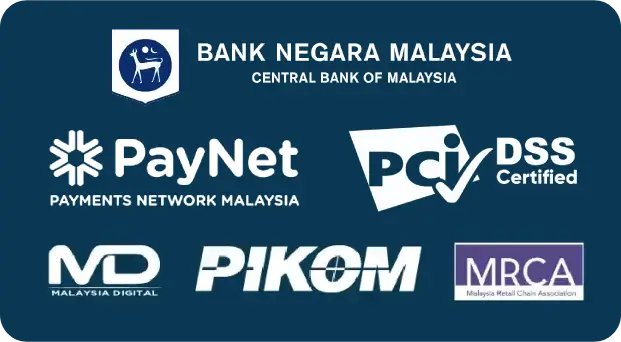
If you’ve ever clicked “Buy Now, Pay Later” (BNPL) at checkout without thinking twice, you’re not alone.
It’s fast, convenient, and lets you split your payment without pulling out your credit card. But as BNPL became more popular across Malaysia, especially in fashion and electronics, one thing was missing: proper regulation.
That is finally changing.
As of August 2025, the Consumer Credit Bill 2025 has been passed by Parliament, paving the way for the Consumer Credit Act (CCA) to come into force soon.
This new law brings BNPL players under formal oversight and aims to protect both consumers and businesses. So what does this really mean for everyday Malaysians? And how can payment gateway Malaysia providers like Paydibs help businesses stay ahead of the curve?
Let’s break it down in simple terms.
BNPL Grew Quickly, But Without Rules
For years, BNPL providers operated in a grey area. They were not banks, and they were not quite e-wallets either. This meant they were not held to the same strict standards as other licensed financial institutions.
BNPL transactions in Malaysia grew rapidly between 2022 and 2024. According to Bank Negara, usage more than doubled in that period. But behind the growth, there were rising concerns. Many consumers did not realise they were taking on credit. Some didn’t fully understand the repayment terms. Younger users, especially those in their 20s and 30s, were particularly vulnerable to debt traps.
The government decided it was time to step in before things got worse.
What’s New Under the Consumer Credit Act?
The Consumer Credit Act, which saw its Bill passed by Parliament in July 2025 and is set for implementation in stages, introduces clear rules for BNPL platforms. These providers now fall under a new body called the Consumer Credit Oversight Board (CCOB).
Here are the key changes:
- Licensing is required. BNPL providers must be registered and follow proper conduct standards.
- Clear communication. Terms must be written in plain language. No more vague or hidden conditions.
- Stronger consumer rights. Providers that use misleading ads or unfair late charges can now face legal penalties.
- Better data protection. BNPL platforms must follow strict rules when collecting and using customer data.
For users, this means more transparency. You’ll know what you owe, when you need to pay, and what happens if you don’t. No more nasty surprises.
What This Means for Businesses
If you run an online store or physical retail outlet offering BNPL, this law affects you too.
Merchants are now responsible for ensuring that any BNPL options they offer are from licensed, approved providers. If you are using an unlicensed service, it could damage your business reputation or even lead to legal problems.
This is where payment gateways become essential.
How Payment Gateways Like Paydibs Keep Businesses Compliant
In today’s digital world, payment gateways are not just tools to receive money. They are partners that help businesses manage payments, protect customer data, and follow regulatory rules.
A payment gateway like Paydibs connects merchants to a wide variety of payment methods, including credit cards, FPX, e-wallets, and BNPL. With new rules in place, Paydibs ensures that the BNPL services it works with are legally registered and fully compliant.
Here’s how this benefits your business:
- You avoid the risk of working with unlicensed BNPL providers.
- Your customers enjoy smooth, secure, and transparent checkout experiences.
- You gain peace of mind knowing your payment system is aligned with Malaysian laws.
For small and medium-sized businesses, especially those without dedicated legal or compliance teams, this support makes a big difference.
What You Should Do Next
For consumers:
- Always check who the BNPL provider is before using it.
- Make sure the repayment terms are clear and fair.
- Avoid providers that seem shady or offer “too good to be true” deals.
For business owners:
- Review your current payment setup.
- Ensure your BNPL options are coming from licensed providers.
- Talk to your payment gateway partner to confirm compliance.
A New Chapter for BNPL in Malaysia
The BNPL market in Malaysia is not slowing down, but it is maturing. With the introduction of proper rules and oversight, consumers are better protected and businesses are held to higher standards.
This is a positive step forward for everyone.
Whether you are shopping online or selling products, the new framework encourages trust, clarity, and responsibility. With partners like Paydibs helping merchants stay compliant, businesses can keep growing while customers enjoy safer and smarter payment options.
Frequently Asked Questions
1. What is the Consumer Credit Act in Malaysia?
The Consumer Credit Act (CCA) is a law that regulates credit-related services in Malaysia, including Buy Now, Pay Later (BNPL) providers. It aims to protect consumers by enforcing transparency, licensing, and fair practices.
2. Is BNPL regulated in Malaysia now?
Yes. As of 2025, BNPL services in Malaysia are officially regulated under the Consumer Credit Act and monitored by the Consumer Credit Oversight Board (CCOB).
3. How does the new BNPL law affect consumers?
Consumers now benefit from clearer terms, stronger data protection, and legal safeguards against misleading or unfair BNPL practices.
4. Do businesses need to change anything under the new BNPL law?
Yes. Businesses must ensure they only offer BNPL options from licensed providers and work with compliant payment systems to avoid legal or reputational risks.
5. What happens if a BNPL provider is not licensed in Malaysia?
Unlicensed BNPL providers may face legal action, and businesses using them could also be penalised or lose customer trust.
6. How can a payment gateway help with BNPL compliance?
Payment gateways like Paydibs help businesses integrate BNPL services from approved providers, manage secure transactions, and stay aligned with Malaysian consumer credit regulations.
Categories
Our Partners :





Paydibs is a leading payment solutions provider committed to simplifying transactions for businesses of all sizes.

